As far as loyal and devoted husbands go, the Greek god Zeus was probably one of the worst. Perhaps it was the power that went to his head. Or maybe he was just truly terrible at keeping it in his pants. Whatever the reason, Greek mythology is pretty clear that Zeus was constantly cheating on his wife Hera — and constantly fathering heroic and god-like children.
One of the many women Zeus had an affair with was Leto, a daughter of Titans. Leto became pregnant with twins who would eventually be born as Apollo (the Greek god of the sun, healing, and music) and Artemis (the Greek goddess of the hunt, childbirth, and virginity).
And, as the myth goes, these twins were born in secret on the Greek island of Delos.
Delos' history stretches back for millennia — roughly 5,000 years, in fact. It's believed that the island was inhabited long before the Greek myth was added into the equation. But it was the birth of Apollo and Artemis that transformed Delos.
Delos is quite an intense little island. Everything from the climate to the landscape is intense. Intense wind, intense heat, intense dryness. No crops have ever grown here; very few trees, either. But, thanks to that famous myth, Delos became an important site for religious pilgrimage in Greece. So sacred, in fact, that it was decided that mere mortals should no longer be able to be born or die on Delos since it was the birthplace of gods. The dead who had already been buried on Delos were even dug up and moved.
By the 5th century, Delos became important economically, too. By this point, Athens had established the Delian League (an alliance of Greek city-states) and decided to place the league's treasury on Delos. This attracted merchants, sailors, and bankers from all over the Mediterranean and transformed Delos into an important center of commerce as well as religion. It remained such right on into the 2nd century BC, when the Romans took over the island. Delos remained a port then, and also became an integral part of the slave trade — in fact, one of the largest slave markets in the region was located on Delos.
Attacks on the island in the 1st century BC followed by changing trade routes sent the island into major decline, however, and it eventually became mostly deserted.
In the late 1800s, the French School of Athens began doing archaeological work on Delos — work that continues today. The ruins on Delos are often compared to those at Delphi and Olympia: extensive and very historically significant. Because of this history, Delos was designated as a UNESCO World Heritage site in 1990 owing to its size and the fact that it “conveys the image of a great cosmopolitan Mediterranean port.”
What you'll see on Delos
As mentioned above, some very wealthy people once called the island of Delos home — and remains of their lavish homes can still be seen there. Marble pillars. Intricate mosaics. Cisterns and statues. It's worth hiring a guide to take you around the island so you can learn about all the homes, marketplaces, and temples that used to stand on Delos. Some of the most famous are the House of Dionysos, the House of the Dolphins, Cleopatra's House, and the House of the Masks — all named for images/statues found in or on the homes.
Then of course there are all the places dedicated to Apollo. The most famous is the Terrace of the Lions — a collection of marble lions guarding the Sacred Way that leads towards Apollo's birthplace (the Sacred Lake). There are also three temples on Delos dedicated to Apollo.
You can also see the ruins of a theater (built more than 2,000 years ago), see the leftovers of a massive cistern, and visit the Altar of Dionysos (and try not to giggle at the remains of a giant phallic sculpture there).
Also worth a visit is the Archaeological Museum of Delos, where many of the artifacts found on the island over the years are now displayed.
Delos, with its yellow earth and deep blue water; with its strong wind and intense sun; with its mythology and tie to the Greek gods made a lasting impression on me. I only regret now that I didn't stay a bit longer to learn more about the island and its history.
Essential info
VISITING DELOS — Delos is open 6 days a week (closed on Mondays) from roughly 8:30 a.m. to 3 p.m. Entrance is 5 Euro per person. You can either explore the island on your own, or opt to hire a guide to take you around the island. A guided tour ticket (which includes your ferry ride and entrance to the park) usually runs around 40 Euro ($54 USD) if you book one of the island-offered group tours. Private tours can be arranged in advance, too, albeit for a much steeper price.
GETTING THERE — Delos can only be reached by boat. Most people visit from Mykonos, which is roughly 30 minutes away by ferry. Return tickets from Mykonos will cost you 17 Euro (about $23 USD). Boat times can seemingly vary a bit, but in general boats are supposed to leave Mykonos at 9, 10, and 11 a.m. and return from Delos at 12:15, 1:30, and 3 p.m. I will say, though, that these times can change during the off-season (when I went in September, for example, the return times were 12:15 and 2 p.m.). Be sure to verify the return times before you get off the ferry on Delos. During the summer months, ferry services also run from Naxos and Paros to Delos.
WHAT TO BRING — Be SURE to remember your sunscreen, sun hat, and plenty of water. There is essentially no shade on Delos, and high temperatures and strong winds can dehydrate you quite quickly. There IS a small cafe next to the archaeological museum, but unless you want to pay 4 times more than you should for a bottle of water, be sure to bring enough of your own.
——
Is Delos a historical site you'd like to visit someday?
*Note: I received a complimentary Greek Islands tour from Intrepid Travel through my partnership with them, which included a trip to Delos (though we did pay 10 Euro extra for a guide on the island). All opinions, as always, are entirely my own.

Amanda Williams is the award-winning blogger behind A Dangerous Business Travel Blog. She has traveled to more than 60 countries on 6 continents from her home base in Ohio, specializing in experiential and thoughtful travel through the US, Europe, and rest of the world. Amanda only shares tips based on her personal experiences and places she's actually traveled!

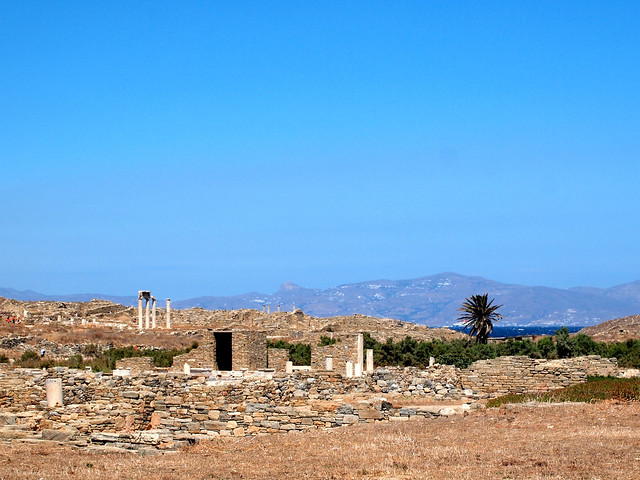
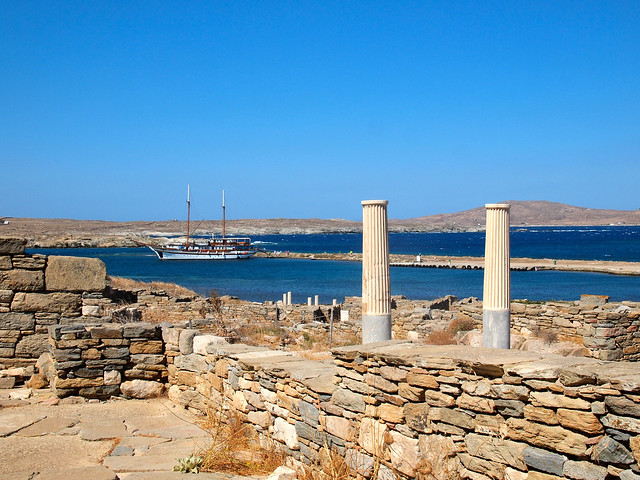
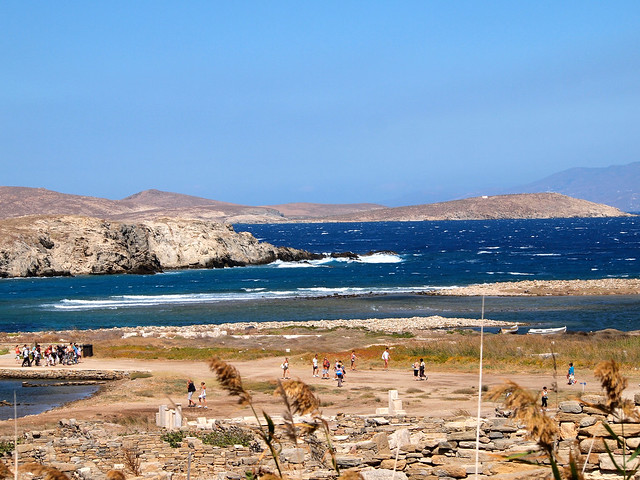
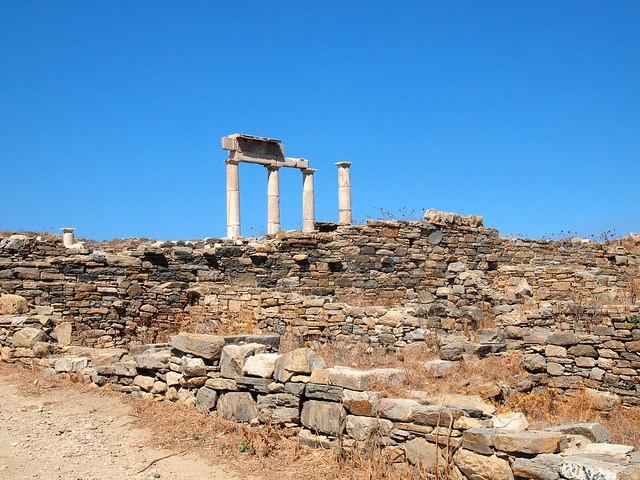
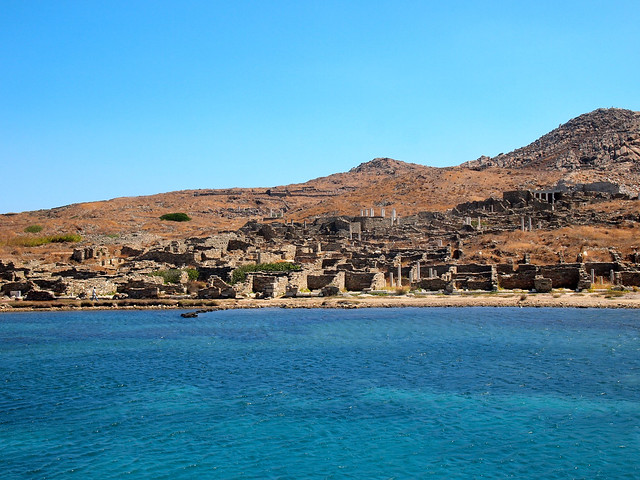
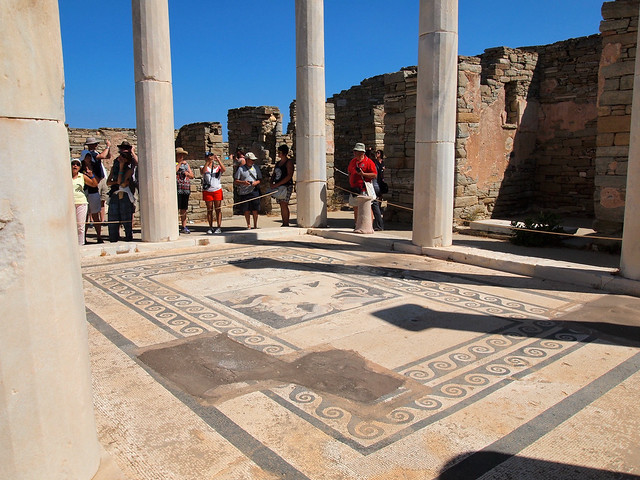
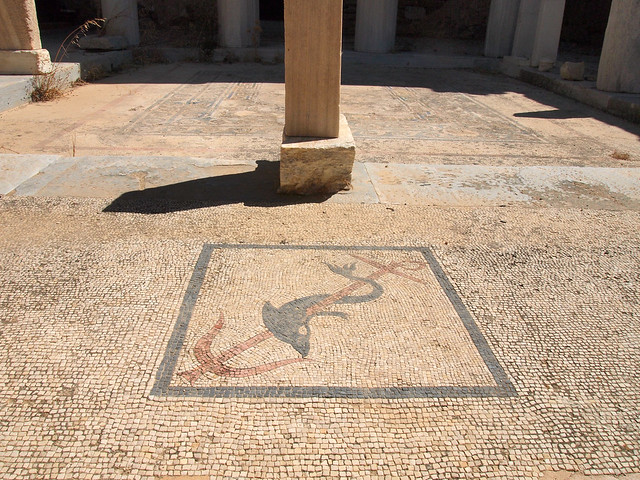
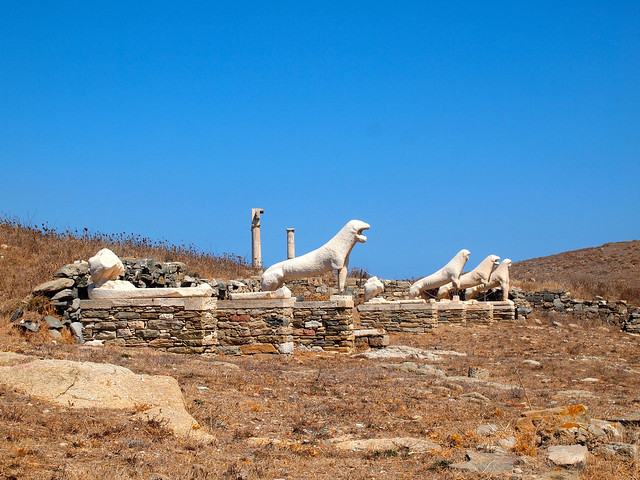
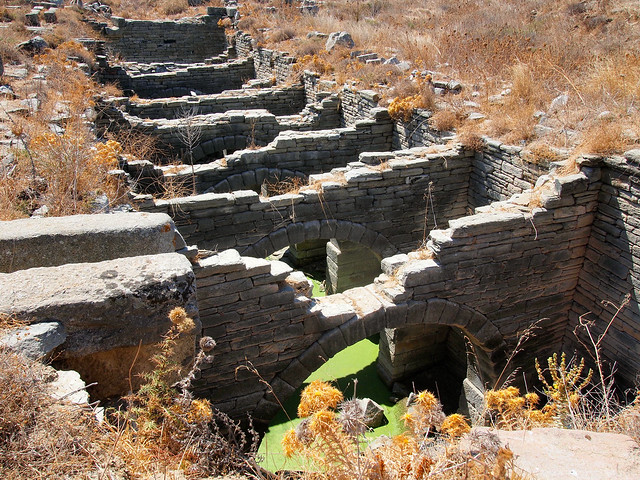
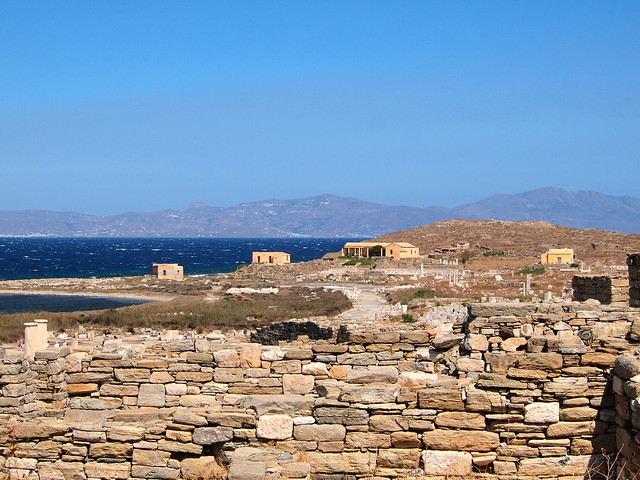
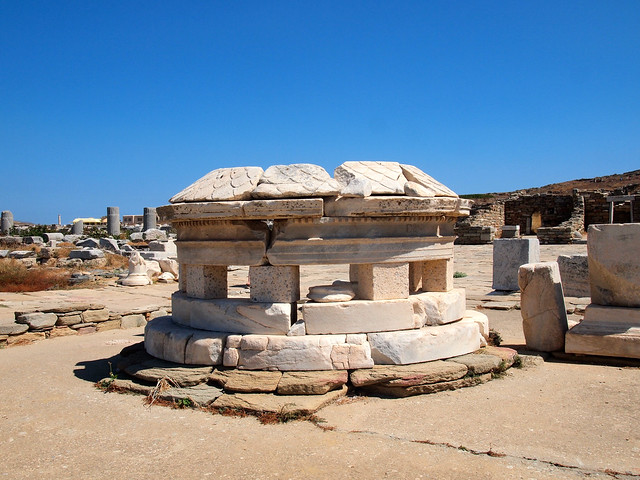









I visited Delos in the 70’s and found it very intereting. The famous Phallus was intersting. Did someone take the hammer to it? I think I might have seen it in tact. I was surprised to see what it looks like now. Would like more information on it.
I’m afraid I don’t have any more info on that statue! So Google could probably tell you far more than I could!
Looks interesting, but looks like it’ll be very hot too!
It was boiling there in the summer – but still worth the visit!
I loved Delos! What an amazing island and considered the largest museum in the world, as my tour guide said. These pictures bring me back to my trip, which was only a few weeks ago. Probably the windiest place I’ve ever been. It was in fact so windy, that I got soaked from a huge splash of water during the ferry ride back to the Old Port, lol.
It was definitely a really fascinating place to see!
Great profile of Delos! This is definitely worth a day trip for the history and archaeology. I haven’t explore the Greek islands yet (just the mainland) and this is definitely on my list! 🙂
I agree that it’s definitely worth a day trip!
love it! had not even heard of this island! One to consider
Glad to have introduced you to it, Rebecca!
Looks fascinating. I’m a big history geek and love Ancient Greek history. Hopefully I can make it to Delos one day! Thanks for the tips!
It sounds like you would really like Delos then, Dallas!
Wow! great article, got to know wonderful things. It was interesting to read.
Glad you enjoyed it! Thanks for reading.
Very cool! I’ve only just gotten into Greek history a bit and Delos sounds like my cup of tea 🙂 Geez Zeus got around, didn’t he!
If you’re into Greek history and/or mythology, Delos would be a great spot for you to visit! (And yes, Zeus was definitely a player!)